Following The Film Stage’s collective top 50 films of 2023, as part of our year-end coverage, our contributors are sharing their personal top 10 lists.
After 2022 left me feeling a bit out in weeds in regards to film culture (both the state of movies in general, and especially the ones that got people the most amped up that kept leaving me disappointed), I came into 2023 a pessimist and left with a rejuvenated belief that the movies are, indeed, back. This year was overflowing with riches, to the point where even up until this very moment I’m mentally swapping in and out some titles for the list you’re about to see of my annual favorites.
There’s just too many gems I don’t want to leave behind, and they came in all shapes and sizes. From some of my favorite directors making highly anticipated returns (including one for their final feature) to filmmakers I’ve always been cold on for the first time making something that has nestled its way into my heart and promises to remain there for eternity. The even bigger surprise is that, while not all of my personal selections are in the mix for major awards attention, it’s actually looking pretty solid that a large portion of them will. Somehow the sky has opened up, and things look bright again.
That makes my list feel perhaps a little pedestrian—certainly more than last year, in which not a single one of my top ten selections earned an Academy Award nomination—but I’ve definitely got some more esoteric choices thrown into the mix as well.
To see my full ranking of 2023 releases, you can check out my list on Letterboxd. There, you’ll also find my ranked list of all the non-2023 titles that I saw for the first time this year. That selection is highlighted by Between the Lines, The Bridges of Madison County, Choose Me, T.R. Baskin, Victims of Sin and Rolling Thunder.
For now, these are my top ten films released in the past year, starting with a handful of honorable mentions.
Honorable mentions: Ferrari, Master Gardener, Mission: Impossible – Dead Reckoning Part One, Showing Up, May December
10. Fallen Leaves (Aki Kaurismäki)

A tender little romance between two people isolated from much of society, cast down and out as they make their way through the days until by chance they find a connection with one another, Fallen Leaves rides the wave between gentle transcendence and inimitable cool. Our Finnish comp to Jim Jarmusch, Aki Kaurismäki is in top form with another feature that gives you the urge to smoke a cigarette and hit the town at night. Through the romance, Fallen Leaves takes on some larger themes, tackling notions of masculinity and the many layers of what it actually means to be a man—which isn’t hiding from your problems in isolation or in the bottle. It’s also disarmingly funny at times, with Kaurismäki’s dry as sandpaper wit really shining in moments that had me in stitches—probably one of the most hilarious movies of the year.
9. The Burial (Margaret Betts)
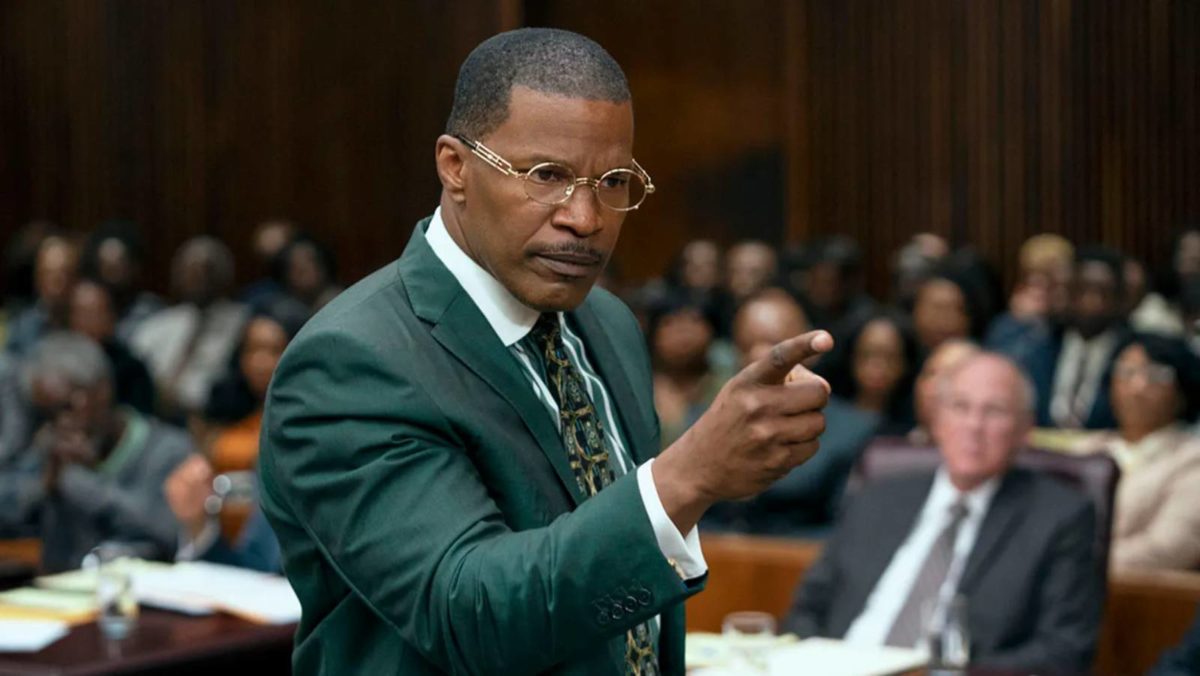
If The Burial had come out 15 years ago, I probably would have given it a C+ and called it unremarkable. In 2023, it feels like a revelation. A ’90s throwback courtroom drama with two A-listers and a strong supporting cast. A mixture of character introspection, rich macro themes, legal investigation, and a David vs Goliath battle. An honestly surprising amount of genuinely effective comedic bits. Margaret Betts navigates the more interesting-than-you’d-expect tone of this so well, aided by a stellar Jamie Foxx performance at the head, perfectly instilling a showboating ambulance-chasing huckster persona with deep-rooted insecurities that start to crack and a desire to do something greater. Tommy Lee Jones dials back the curmudgeon vibes for a really sincere performance of a belittled everyman who wants to see these exploitative vampires pay. They’re an odd pairing who work really well together, and you get invested in seeing their parallel journey for the cause. The Burial is an unbelievably charming slice of comfort food, the type of movie we took for granted when it was all the rage and now doesn’t exist anymore.
8. Passages (Ira Sachs)
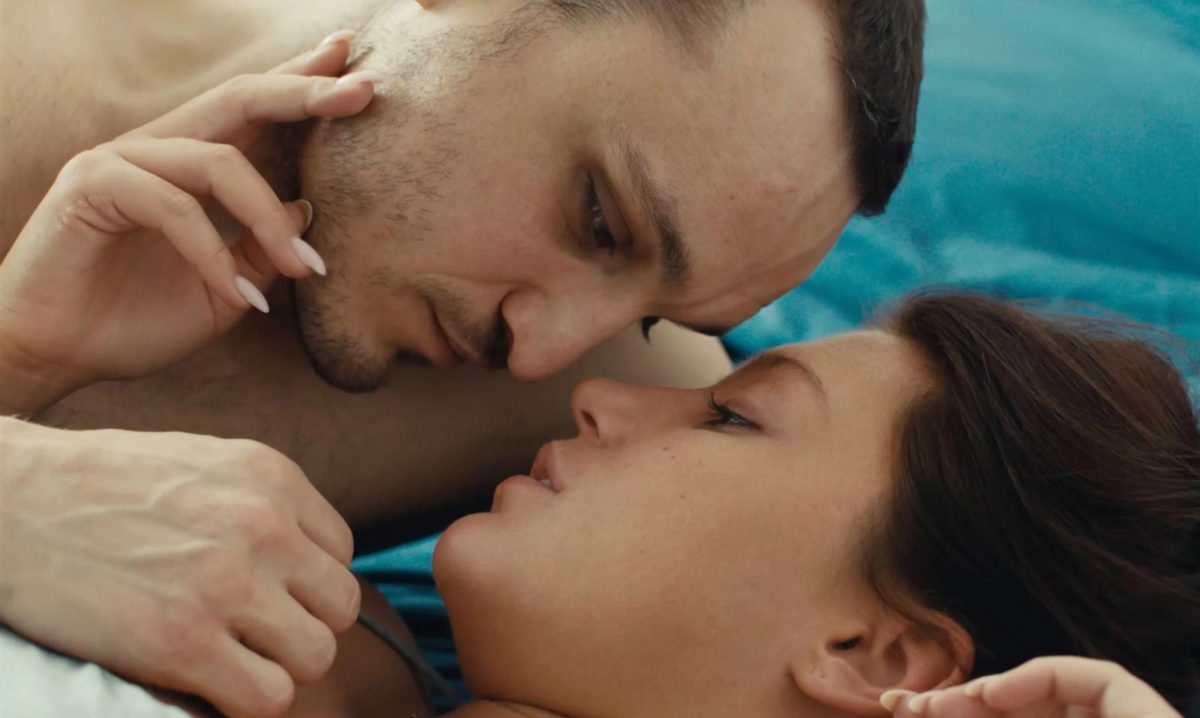
Inspired by the likes of Visconti’s The Innocent, Akerman’s Je, Tu, Il, Elle and Ripploh’s Taxi zum Klo, Ira Sachs delivers the best film of his career with the steamy tale of Tomas (Franz Rogowski, continuing to make the argument that he’s our finest actor), the dictionary definition of a chaotic bisexual. As Tomas tears through lovers old (Ben Whishaw’s Martin, his husband) and new (Adèle Exarchopoulos’s Agathe, the woman he cheats with), we wonder just what kind of wreckage he’ll unleash upon those in his orbit next. There’s an intoxicating roller coaster of emotions that Passages takes us on, the sort of train wreck we can’t look away from. Tomas is infuriating, exhausting, and yet in some strange ways admirable—he’s unabashedly himself, down to his dynamic fashion choices that rank among the best costume design of the year. Also in the best of the year conversation is Josée Deshaies’ cinematography, using ingenious framing and blocking techniques to emphasize the torrential emotional interiority of the characters in every scene.
7. Killers of the Flower Moon (Martin Scorsese)
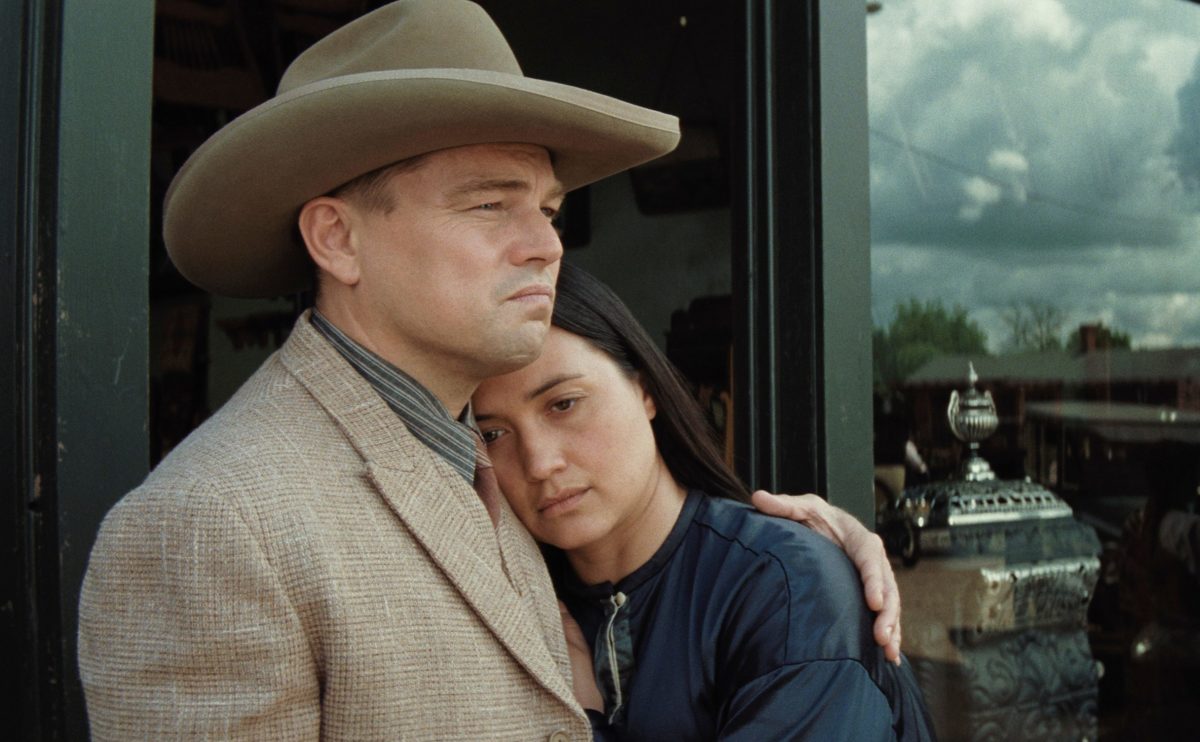
White man’s greed is a volatile thing, so easily manipulated into carnage, so fragile and always on the lookout for threats. Whether it’s money, sex, or land, it all boils down to one thing: power. The power they’ve held for so long, and the power they refuse to relinquish in any capacity. The machinery of white supremacy is the center of Killers of the Flower Moon, and unlike Scorsese’s many cautionary tales depicting the folly of greedy men, there’s no fun to be had here. No invitation into the thrill of the moment. Like The Irishman, Scorsese’s latest has a funereal tone to it, but it’s not a eulogy for these men, for this way of life, for the realization that they’ve lived it all for nothing — it’s a eulogy for a country, for an entire culture of people who are being washed away by the unrelenting violence of white men. After a staggering meta moment where the director turns the lens on himself and his own place within the machine, Flower Moon crescendos with a powerful drumming, a statement that after all of this, the Osage live on. They’ll still tell their stories the way they always have, they’ll still look after each other, they’ll still beat these drums and their fight won’t surrender.
6. The Killer (David Fincher)
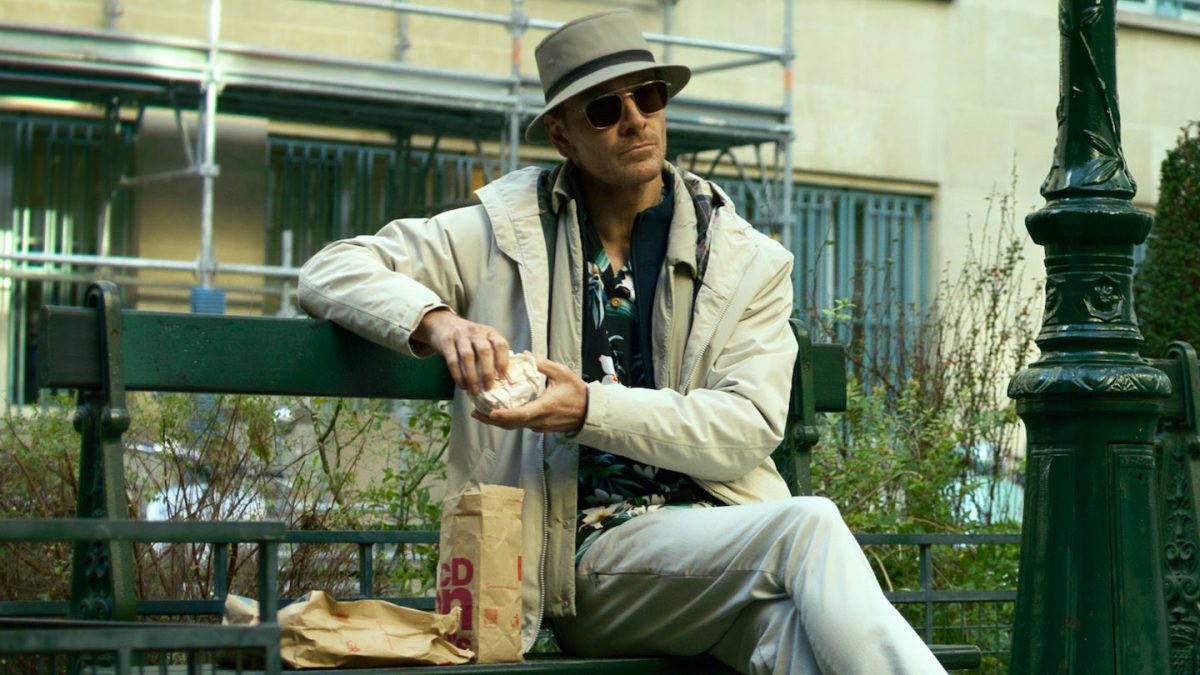
The Killer feels like the Rosetta Stone for David Fincher: the core of his entire thesis as an artist. A man who exists in exactitudes, in process and efficiency, yet he’s undone by the unpredictability of human beings and the mercy of having to operate within the structures of our modern world. It is also, like Fincher himself, remarkably funny in a wry, unassuming way—whether it’s the opening 20-minute sequence of the eponymous figure telling us how he’s a calculated master of his game only to screw the pooch in the most obvious way possible, the cheeky product placement, like Michael Fassbender describing why he gets McDonald’s every day because it’s the perfect way to blend in as a cold-blooded murderer, or sight gags like the dog busting through the glass door. At the same time, it’s an incredibly engaging process movie, as we watch this man execute plans step by step, see them play out perfectly or have to watch him adapt when things go awry. It’s lean, mean, and remarkably efficient, just like the character and just like Fincher.
5. The Caine Mutiny Court-Martial (William Friedkin)
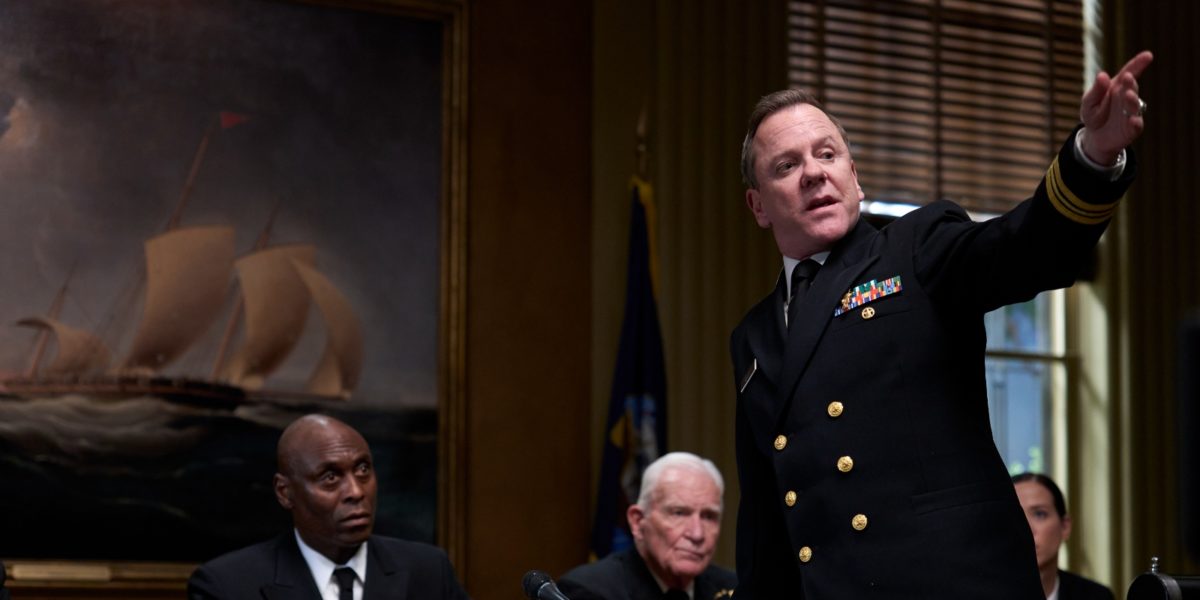
The final feature of legendary filmmaker William Friedkin, The Caine Mutiny Court-Martial sent him out on a high. Remarkably bold in its formal and aesthetic approach, the courtroom drama is practically Bressonian in its minimalism and removal from conventional cinematic attributes. Almost the entire picture is composed of tight shots on the actors (including one final riveting performance from the late Lance Reddick), less than ten of them contained in this one setting where a series of witnesses are called to sit in a chair and be grilled by opposing lawyers. We are in this room for these two hours and that’s it. We see it all unfold, and it’s up to us to make interpretations or judgments, if we wish, as to who these people really are. It’s absolutely gripping cinema.
4. Oppenheimer (Christopher Nolan)
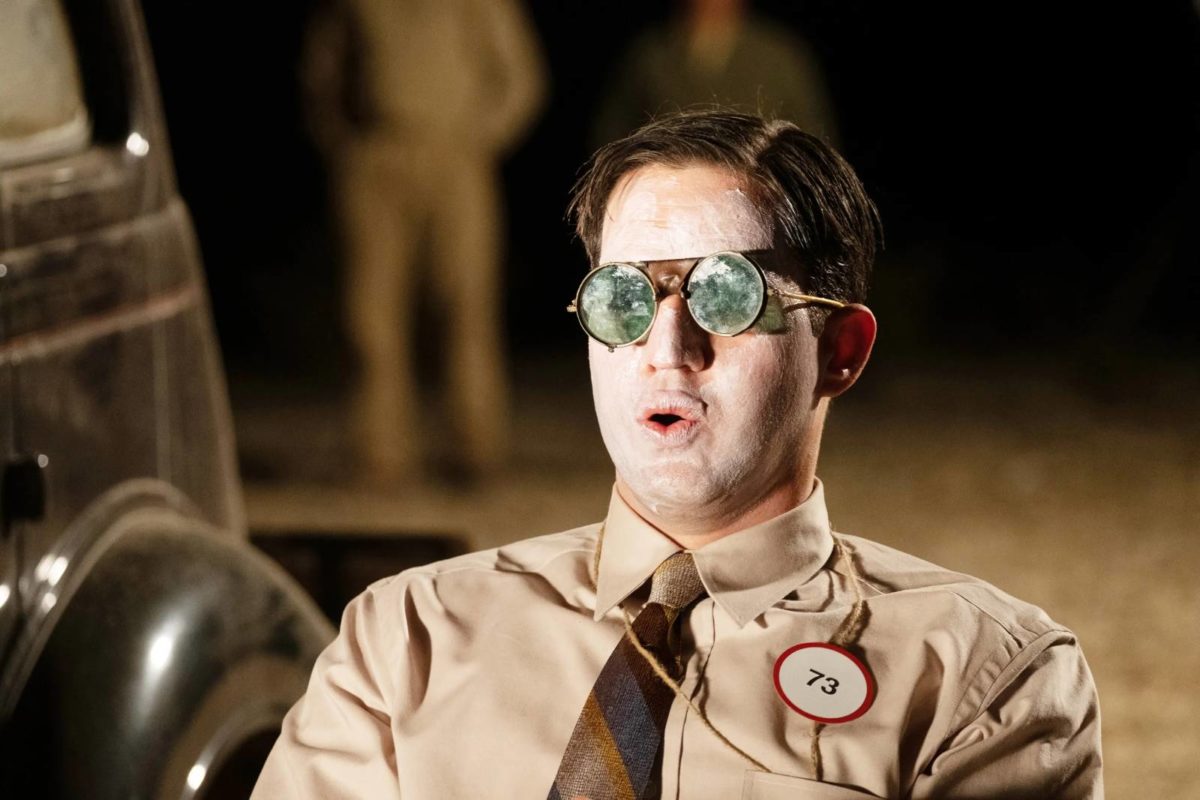
A violent reckoning with America’s bloodlust, filtered through a man whose ego and naïveté facilitated one of the most unspeakable monstrosities in the history of the world; an unprecedented devastation that still reverberates through civilizations today. Wisely, Oppenheimer never paints the man as a victim nor as a tortured genius. He’s something else entirely. An explorer who doesn’t stop to think about what his discovery will mean. A man who tries to be neutral, who doesn’t have a stance. He believes he has morality, but there’s no conviction — or if there is, it’s overrun by his need for fame and the blinders he puts on to the real world. That’s a more damning statement than anything else: that he can destroy so much, and end up on the cover of TIME magazine as some sort of hero. Oppenheimer leaves us with the unshakable threat of nuclear holocaust hanging over us but it’s not just that. It’s any of the many ways that men in suits have destroyed our world to line their pockets, whether it’s the plenty of other genocides that have occurred, economic disparity, the annihilation of the climate, the scours of people who have died due to a preventable virus because these people left the world to rot.
3. Afire (Christian Petzold)
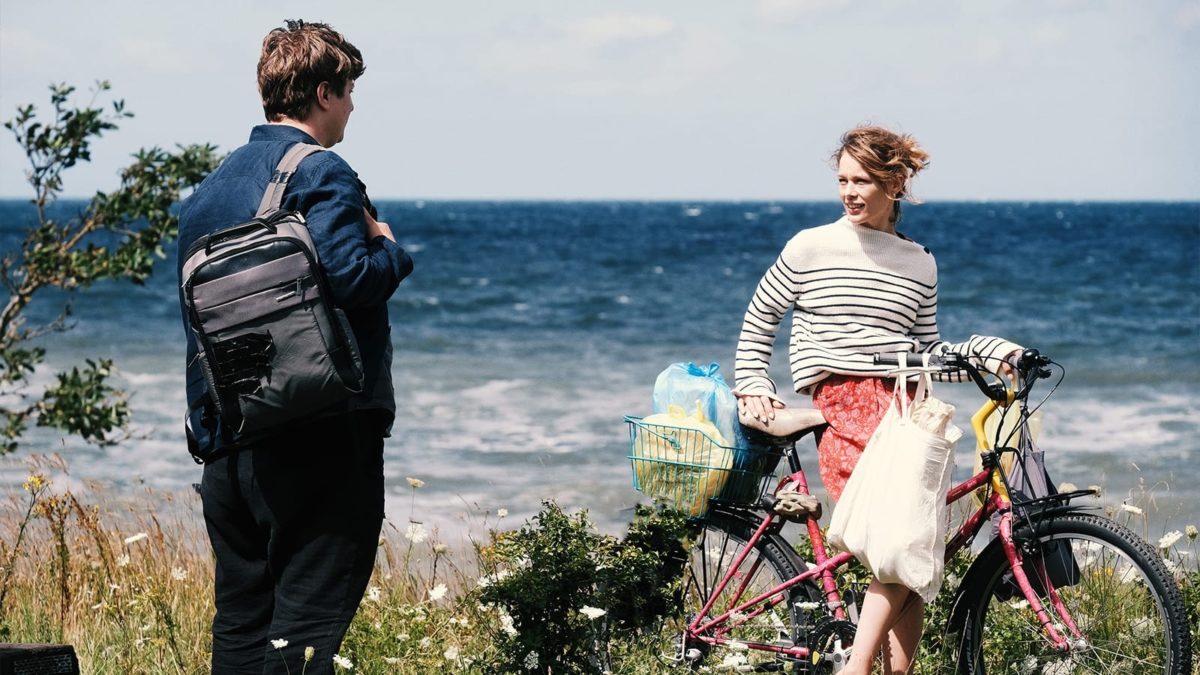
The latest masterpiece from Christian Petzold, one of our finest filmmakers, Afire is catnip for insecure, resentful, bitter, and judgmental writers who are decently talented but not nearly as good as they think they are or want to be. In other words, this had me eating out of the palm of its hand. Stepping away from the semi-mythic tales Petzold’s been weaving in his past three features, this is a sometimes hilarious, sometimes scathing, always gripping jaunt that’s clearly in conversation with the works of Éric Rohmer. As light on its feet as Afire is, there’s also an indictment of that very fact, as these characters find themselves so consumed by their petty foibles and narcissism while less than 50km away forest fires are wreaking havoc through communities and wildlife. They are constantly faced with how meaningless all of this actually is, and yet they can’t help themselves. None of us can. The world will always revolve around us, even when we can see the tragedy right in front of our eyes. It’s okay, it won’t hit us. It’s just over there. Until it’s not.
2. The Holdovers (Alexander Payne)
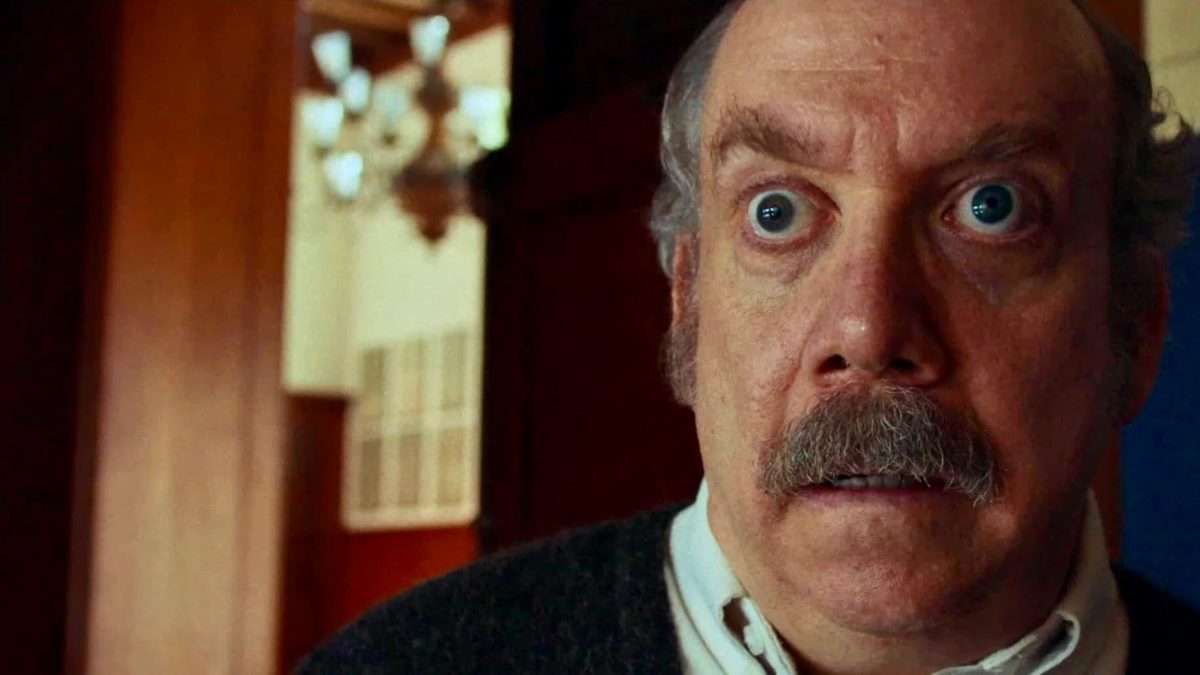
Alexander Payne has expressed issues with people describing The Holdovers as a “cozy” film, but in doing so he’s misinterpreting what people mean by that. Cozy doesn’t mean saccharine or schmaltzy. This film is certainly not that. Beyond the inherently cozy nature of the story’s setting in time period, location and season, the coziness comes from its gentle, gradual unraveling of its characters’ layers. The coziness comes from allowing us the gift of time and space to simply exist with these three people and learn about them as they learn about each other. To grapple with their griefs, their melancholy, their anger, their disappointment, the same way that we grapple with our own. The Holdovers is a bitter movie, but it’s not a cynical one. It finds value in the small victories, even if that’s just as small as having someone sit next to you so you feel less alone when you’re completely alienated from the rest of the world.
1. Anatomy of a Fall (Justine Triet)
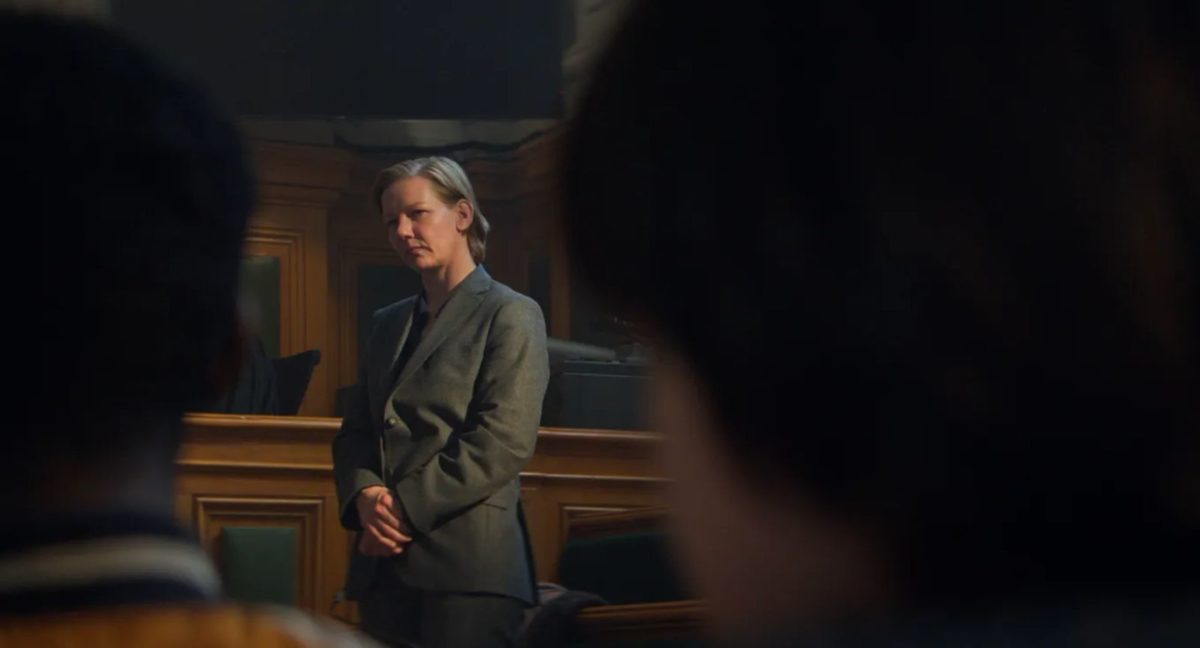
2023 was the year of the courtroom drama (see #4 and #8, and parts of both #3 and #6), and Justine Triet’s Palme d’Or winner brought us into the specifically nutty circus of the French court system, where a woman is put to the task of defending herself against accusations of murdering her husband. A riveting investigation occurs on the stand as she’s hounded by a supremely snarky prosecutor and the media puts her under the microscope, but what’s most fascinating about Anatomy of a Fall is its slow dissection into the anatomy of the marriage itself. Each scene uncovers new layers in their relationship, exploring the ways in which we all build up resentment, ache, jealousy, and sometimes even rage over time. Were any of our spouses to perish under unusual circumstances, would we not also be the most glaring suspect?
